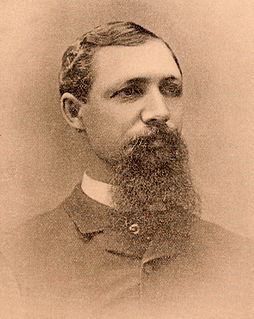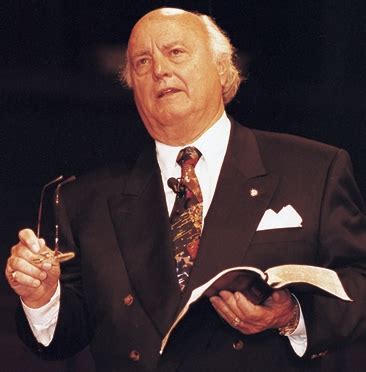A Quote by Ellen Glasgow
you could have forgiven my committing a sin if you hadn't feared that I had a committed a pleasure as well.
Related Quotes
If you show me a man deliberately living an unholy and licentious life, and yet boasting that his sins are forgiven, I answer, 'He is under a ruinous delusion, and is not forgiven at all.' I would not believe he is forgiven if an angel from heaven affirmed it, and I charge you not to believe it too. Pardon of sin and love of sin are like oil and waterthey will never go together. All who are washed in the blood of Christ, are also sanctified by the Spirit of Christ.
I don't think that either self-deprecation or self-aggrandizement is among the defining qualities of an artist... Beethoven could have been forgiven if his symphonies had gone to his head. Gretchaninoff could also be forgiven if his Dobrinya Nikititch went to his head. But neither one could be forgiven for writing a piece that was amoral, servile, the work of a flunky.
People have suffered and become insane for centuries by the thought of eternal punishment after death. Wouldn't it be better to depend on blind matter... than a god who puts out traps for people, invites them to sin, and allows them to sin and commit crimes he could prevent. Only to finally get the barbarian pleasure to punish them in an excessive way, of no use for himself, without them changing their ways and without their example preventing others from committing crimes.
The magnitude of the punishment matches the magnitude of the sin. Now a sin that is against God is infinite; the higher the person against whom it is committed, the graver the sin-it is more criminal to strike a head of state than a private citizen-and God is of infinite greatness. Therefore an infinite punishment is deserved for a sin committed against Him.
This doctrine of forgiveness of sin is a premium on crime. Forgive us our sins means Let us continue in our iniquity. It is one of the most pernicious of doctrines, and one of the most fruitful sources of immorality. It has been the chief cause of making Christian nations the most immoral of nations. In teaching this doctrine Christ committed a sin for which his death did not atone, and which can never be forgiven. There is no forgiveness of sin. Every cause has its effect; every sinner must suffer the consequences of his sins.
We imagined ourselves as the Sons of Liberty with a mission to preserve, protect, and project the revolutionary spirit of rock and roll. We feared that the music which had given us sustenance was in danger of spiritual starvation. We feared it losing its sense of purpose, we feared it falling into fattened hands, we feared it floundering in a mire of spectacle, finance, and vapid technical complexity.
Almost every sin is committed for the sake of sensual pleasure; and sensual pleasure is overcome by hardship and distress arising either voluntarily from repentance, or else involuntarily as a result of some salutary and providential reversal. 'For if we would judge ourselves, we should not be judged; but when we are judged, we are chastened by the Lord, so that we should not be condemned with the world.' (1 Cor. 11:31-32).
To create guilt, all that you need is a very simple thing: start calling mistakes, errors - sins. They are simply mistakes, human. Now, if somebody commits a mistake in mathematics - two plus two, and he concludes it makes five - you don`t say he has committed a sin. He is unalert, he is not paying attention to what he is doing. He is unprepared, he has not done his homework. He is certainly committing a mistake, but a mistake is not a sin. It can be corrected. A mistake does not make him feel guilty. At the most it makes him feel foolish.






































